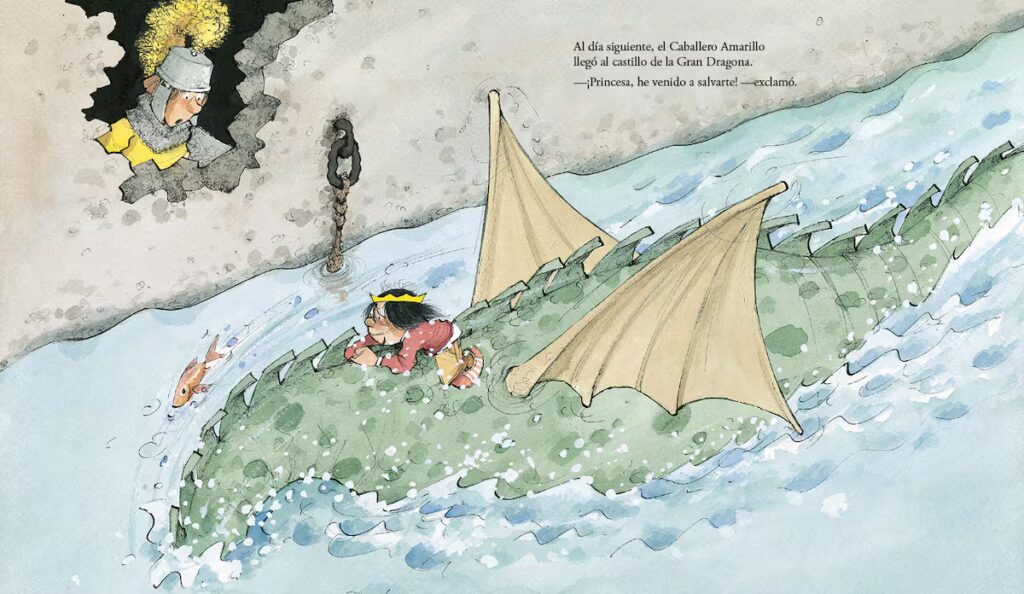
It is intuitive to believe that children from reading families will inherit a greater passion for books. It’s not just a matter of intuition either: a recent study by the Ministry of Culture confirms this. It is also possible to imagine that a childhood full of good albums, comics and novels helps to raise a better humanity. Or, at least, more open to understanding the rest. Here, however, there can hardly be any figures: it is a matter of relying on hope. The same one that pushes us to trust today, November 25, International Day for the Elimination of Violence against Women, that some books will contribute to a future in which this day will no longer be necessary.
The topic, however, is so serious that before the list of titles it is worth mentioning the warning of Elena Fierli, one of the people responsible for Scosse. Her organization, founded in 2011, focuses on transfeminist activism, academic research and education, through workshops in schools, with teachers or in public administration. Among other projects, they have launched Read without stereotypes, a list that today includes 1,000 books that tell of a world without stereotypes. In recent times they have also selected works that can be useful against sexist violence.
But Fierli herself warns: “There are few books on the subject that we can consider directly dedicated to younger age groups. And they always need the mediation of people who know what they are talking about. We don’t believe that we can talk about gender violence only through a bibliography left in the hands of incompetent students or teachers. The issue is very delicate, violence is very present in childhood, the one suffered, the indirect one, or even just because if you live in a violent environment you absorb it and it is a trauma that cannot be overcome in a lifetime. We need to find the right language and channel.” After the news there is an attempt at suggestion, between Scosse’s own elaboration and a collection from the Federation of Progressive Women.
The classic is more than well known. But here a lot changes, and with humor. Thus, in the prologue, the writer and journalist Maruja Torres expresses the desire that “this story interwoven with truth can be read by all the boys and girls in the world, every day of their lives, so that they never forget it”.

The princess has no problem. On the contrary, her only problem is all those knights knocking on her door determined to save her. They came ready to eat the partridges, but His Highness sends them away one after another. He has more important things to do, like playing with his dragon friend or building a flying machine. Also in Basque, Catalan and Galician.

One spring day, the turtles Arturo and Clementina meet on the shore of a lake. The enchantment is born, the idyll begins. Unfortunately, however, it doesn’t last. It ridicules it, oppresses it, cancels it. She feels more and more trapped, between dependence and lack of freedom. Conceived four decades ago, this book was so modern that it is still relevant today. Also in Catalan, Galician and Basque.

Julian loves mermaids. She would even like to be one of them, which is why she dresses up. Until the grandmother surprises him, but the old woman’s reaction is not what the boy fears, on the contrary. An album with very few words, but which says a lot with its drawings. And it can be something to talk about at home or in class.

Takatuka’s publishing catalog is full of intelligent humor. Here it is put at the service of the various family models that exist today. There are a thousand types, although they always have at least one point in common: each has its own.

The braids, out. And then the glasses, the freckles, even the words. The main girl is willing to change everything to please the guy who doesn’t notice her. Until she realizes that by taking away so much, she herself is disappearing.

The co-author of the world bestseller ‘Bedtime Stories for Rebel Girls’, which has given courage and role models to millions of girls across the planet, now dedicates her imagination to boys: 12 stories without toxicity or force, with lots of imagination.

There is no wolf that can handle these little hoods, so intelligent, bold and full of friends who help them when necessary. An anthology of different reinterpretations of the classic, which was often used in Italian schools, as part of the method promoted by Munari: he wanted boys and girls to be active protagonists of learning.

Another classic, from 1976, which has managed to maintain its validity, so much so that the Entredos publishing house recovered it after being out of print for several years in Spain. “Can’t you do things like everyone else?” the mother asks the young protagonist. But she is herself, she is Julia. And she just asks that they don’t reprimand her for it.

From taboo to the center of conversation. A manual to stimulate domestic conversations on a topic often considered thorny, based on four pillars: respect, trust, joy and justice.

Numerous awards have honored this comic in which a young woman receives the skin of a man the day before her wedding. A perfect gift to meet the boy you intend to spend your whole life with, without even having seen him. Bianca discovers distorted visions, stereotypes and realities she would never have imagined.

Elvira Coda Notari was the first director in the history of Italian cinema and one of the pioneers in the world. But not even his heirs, until recently, had seen his films. Here, finally, together with 14 other geniuses of the last century and a half, he receives the prominence he deserves.

Its author calls it “an intense, strange and ridiculous book”. It started as a webcomic parody of simple romance advice. Ultimately, it became a guide on how to love and, at the same time, how to build a relationship with yourself.

Nothomb has always been subversive. Here he turns Charles Perrault’s famous tale about a mysterious ogre, his secret room, and a brave young woman who resists him with horror and humor.





